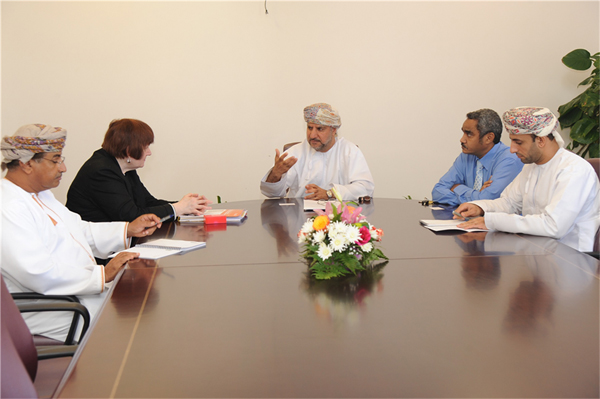
The reception in the Churchill rooms to celebrate 40 years of Reading law graduates
On the evening of Thursday 7 September over 90 Reading alumni, guests, staff and student representatives met to celebrate 40 years of Reading law graduates. The alumni present included eight of the first graduates, all of whom successfully entered one or other branch of the legal profession.
Alumni ranged from the 1977 graduates to those who graduated in 2015. It was clear by the volume in the room that old friendships were frequently renewed to the delight of all concerned. Students and recent graduates were able to talk to those whose memory of the School of Law were portacabins behind the URS building rather than the more imposing Foxhill House.

Six of the first Reading law graduates from 1977
A common theme in conversation was how friendly and supportive the School was, and still is, to its students. The reception was honoured to be addressed by His Honour Sir Robin Knowles CBE, a High Court Judge and a long standing supporter of the Bar Pro Bono Unit. Sir Robin in his address focused on the importance of JUSTICE and its vision of fair, accessible and efficient legal processes, in which the individual’s rights are protected, and which reflect the country’s international reputation for upholding and promoting the rule of law. He commended the School of Law for its commitment to encourage law students to become involved in pro bono activities, and expressed the hope that organisations like JUSTICE and the School of Law could assist in achieving the goal of strengthening the justice system in the United Kingdom. Professor Susan Breau, Head of the School of Law, thanked alumni for their support of the School and invited them to continue to do so in particular in the implementations of the proposed reforms to the profession. She also officially launched the Patricia Leopold Fund, named after Emerita Professor Leopold and established to support and encourage pro bono, co-curricular activities and work experience by law students. Emerita Patricia Leopold concluded by thanking the speakers and all who attended and encouraged alumni to ‘keep in touch’.
The University is grateful to alumnus Michael Hatchard for his support of the event and Robert Jennick MP for making it possible to hold the event in the wonderful location of the Churchill Rooms.


 On Saturday 12 March 2016, the Reading team competed in the UK National Round of the prestigious Telders International Law Moot Competition, which was hosted at the University of Sheffield. The UK round involves teams from across the country competing for a chance to take part in the International Finals in The Hague in April. Telders is an external mooting competition specific to International Law, which is now in its 39th year. The Reading team – Angela Bokias, Coralie Barker, Salvatore D’Arrigo and Katharine Robinson – performed to an extremely high level. They ultimately came second in the competition, only five points behind the eventual winners Inner Temple, who now go on to compete at The Hague. Congratulations to the Reading team!
On Saturday 12 March 2016, the Reading team competed in the UK National Round of the prestigious Telders International Law Moot Competition, which was hosted at the University of Sheffield. The UK round involves teams from across the country competing for a chance to take part in the International Finals in The Hague in April. Telders is an external mooting competition specific to International Law, which is now in its 39th year. The Reading team – Angela Bokias, Coralie Barker, Salvatore D’Arrigo and Katharine Robinson – performed to an extremely high level. They ultimately came second in the competition, only five points behind the eventual winners Inner Temple, who now go on to compete at The Hague. Congratulations to the Reading team!

 Today the Supreme Court and the Privy Council reversed 30 years of English case law and effectively abolished the doctrine of ‘joint enterprise’ in murder cases.
Today the Supreme Court and the Privy Council reversed 30 years of English case law and effectively abolished the doctrine of ‘joint enterprise’ in murder cases.